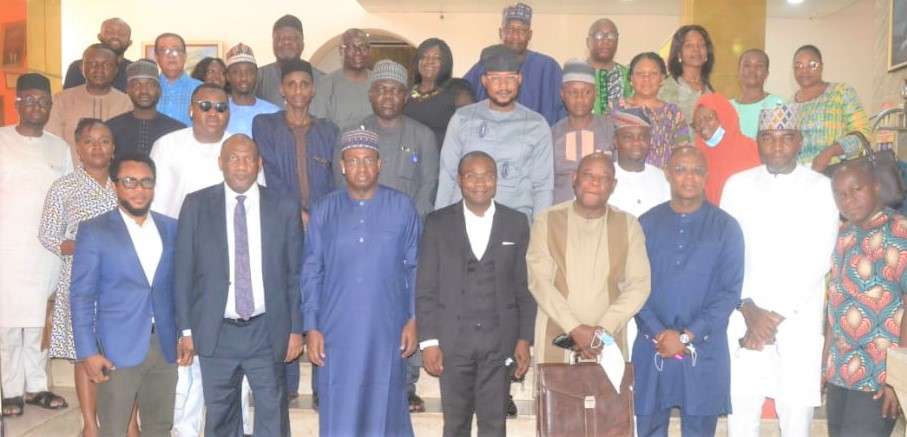
Justice Nnamdi Dimgba of the Federal High Court Awka Division at the weekend rose in strong defense of the Federal Government of Nigeria led by President Muhammadu Buhari, the Central Bank of Nigeria (CBN), the Federal Ministry of Finance and the National Assembly for setting up the Asset Management Corporation of Nigeria (AMCON) and granting the agency some special powers to enable it to recover its troublesome bad debts.
As a ‘bad bank,’ AMCON has current huge outstanding debt of over ₦4.4trillion owed it by a few individuals that destroyed a good number of financial institutions through huge borrowings with no intention to pay back the loans. Consequently, the bad loans were sold to AMCON when it was created in 2010. AMCON upon taking over the bad debts, AMCON recapitalised a good number of the affected the financial institutions and stabilised the financial sector. Having completed that AMCON then has the mandate to go after the obligors to recover the debt.
Aside from the banks that were destroyed by these obligors, other sectors of the Nigerian economy such as the oil and gas establishments, manufacturing firms, airlines, real estateand construction companies, maritime firms and power generating organisations, insurance companies just to mention a few were all affected. But as AMCON intensifies efforts to recover the huge outstanding debts, these obligors have perfected the act of hiding under all sorts of technical lacunas in the AMCON Act to frustrate recovery.
On the other hand, the Federal Government through the National Assembly is also thinking ahead and so have gone ahead with some amendments in the Act establishing AMCON, which gives AMCON some additional powers that would hasten their recovery mandate.
Only recently, President Buhari again signed into law the Asset Management Corporation of Nigeria (Amendment) Act, amending the AMCON Act No.4, 2010. The AMCON Act among other adjustments provides for the extension of the tenor of the Resolution Cost Fund (RCF) and grants access to the Special Tribunal established by the Banks and other Financial Institutions Act 2020, which confers on AMCON the power to among others… “to take possession, manage, foreclose or sell, transfer, assign or otherwise deal with the asset or property used as security for Eligible Bank Assets (EBAs), and related matters.’’
This latest development has also attracted criticism especially from the quarters of the obligors and those sympathetic to them. Justice Dimgba who was speaking to participants at an interactive organized by Legal Academy for Land Registry Officials, Corporate Affairs Commission personnel, AMCON and other stakeholders of the Federal Government while reacting to the enormous powers of AMCON on Saturday in Abuja took sides with President Muhammadu Buhari, the National Assembly, the federal Ministry of Finance, AMCON and the Central Bank. He said they need to do whatever it takes within the ambit of the law to ensure that these individuals who are holding the collective commonwealth of Nigeria are made to return them to the government through AMCON.
According to him, supporting AMCON, which is what those that created the agency is doing and had done with the latest amendment of the AMCON Act is the only way to compel repayment. This move the legal luminary argued is because AMCON is a ‘Special Animal’ created by the Federal Government of Nigeria to deal with special problem in the country, which started with the global financial meltdown that affected many economies the world over including Nigeria.
Earlier in his submission, Mr Aminu Ismail, AMCON Executive Director of Operations who represented Mr Ahmed Kuru AMCON MD/CEO at the interactive session reminded participants that the AMCON mandate remains a national assignment, which requires the collaboration of all agencies of the government.
He said this high-level collaboration is needed because AMCON’s total current exposure on all Eligible Bank Assets (EBAs) presently stands at ₦4.4 trillion. Of this huge number, only 350 outstanding obligors account for 83% of the total EBA balance just as 244 of the top 350 obligors are in various courts. However, the collateral coverage is only 16% of the total current exposure.



